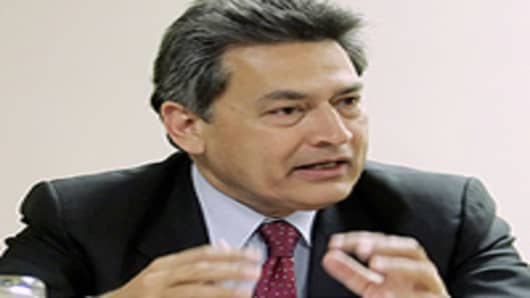The only people who even comes close to the stature of Gupta are Michael Milken and Bernard Madoff. But despite the vast wealth people had given to Madoff to manage, he was never a member of the inner circle of corporate power in America.
Gupta is one of the most connected people in corporate America that you've never heard of, as Duff McDonald showed in his October 2010 Fortune magazine profile. Gupta spent 34 years at McKinsey, arguably the most important corporate consulting company in the world. In 1994, he was elected head of McKinsey, a position he held for nine years.
Under his tenure, McKinsey grew into a truly global powerhouse, opening at least 20 offices overseas and more than doubling the number of consultants employed, McDonald writes.
After he left McKinsey, Gupta was tapped to sit on the boards of five well-known public companies: American Airlines parent AMR, Genpact, Goldman Sachs, Harman International, and Procter & Gamble. He also sat on the supervisory board of Russia's Sberbank and the board of the Qatar Financial Centre.
With the possible exception of Michael Milken, never before in the history of US securities laws has anyone this established, this well-connected, this close to the central core of American capitalism faced such charges. Madoff comes close—but he was always on the periphery of Wall Street rather than at its center.
One of the reasons we rarely see such charges against people with the stature and wealth of Gupta is that insider trading makes so little logical sense for such people. There’s really no reason Gupta should leak confidential information to a hedge fund manager. He doesn’t need money, access, prestige or any favors at all.
If he did tip off his hedge fund manager friend, it was something darker than greed or ambition. It was something close to sociopathic narcissism—perhaps a belief that he was somehow above the law, immune to the rules that govern the rest of us. The sort of thing we see in Madoff.



